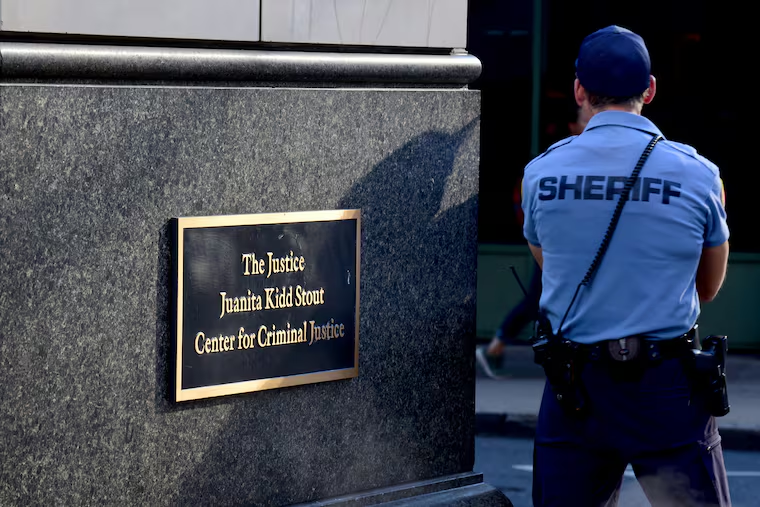Philadelphia Bail Fund has paused operations
The organization said it posted more than $4 million in bail for more than 1,000 people since its launch, connecting defendants to food banks and mental health resources, among other services.

The Philadelphia Bail Fund is no longer posting bail for those who can’t afford it, according to a letter sent to supporters.
The letter from the nonprofit’s staff and board described the decision as a difficult one for the organization, which posted its first bail in January 2018.
“For the last few years, the Philadelphia Bail Fund’s staff and board have worked through leadership transitions and a growth in our mission,” read the letter. “Meanwhile, the policy and political landscape has grown more challenging.”
The nonprofit’s website said it paused operations on Oct. 20.
The organization said it posted more than $4 million in bail for more than 1,000 people since its launch, connecting defendants to food banks and mental-health resources, among other services.
“We made it possible for our clients to fight their cases from home and celebrate birthdays and holidays with their families,” touted the letter.
Already-posted bails would not be affected by the pause, according to the letter, and the nonprofit is slated to “begin a strategic planning process.” The non-profit wrote that it did not know how long the process would take.
The Philadelphia Bail Fund focused on bailing people “at the earliest possible moment,” according to their website, citing research that showed even a few days in jail could cause major disruptions in people’s lives, costing them their jobs and housing stability.
Criminal justice reformers have increasingly placed cash bail systems under scrutiny because of their widespread use and adverse effects, particularly on communities of color. The Bail Project, another bail assistance organization with dozens of locations across the country, has raised the alarm over the country’s explosion in the pretrial jail population, which rose 430% between 1970 and 2011. The project says people detained pretrial make up more than two-thirds of the country’s jail population.
The Philadelphia Bail Fund took off around the same time as the Philadelphia Community Bail Fund, which focused its bail assistance efforts on people who had been in pre-trial detention for extended periods of time.
» READ MORE: Can a Philly community bail fund fix our criminal-justice system?
Candace McKinley, lead organizer with the Philadelphia Community Bail Fund, said the Philadelphia Bail Fund was always seen as a partner “in the fight to end cash bail,” calling the nonprofit a vital sibling fund.
“Even three days in jail can mean someone loses their job, their housing, and maybe even custody of their kids all because they were merely accused of a crime and couldn’t afford to pay bail,” she said.
» READ MORE: Philly DA Larry Krasner stopped seeking bail for low-level crimes. Here’s what happened next.
The bail landscape hasn’t changed much since both funds came on the scene, according to reformers. District Attorney Larry Krasner announced his office would no longer seek cash bail for certain misdemeanors and nonviolent felonies in 2018. Yet the shift yielded mixed results in its first year, with no impact on longer jail stays and a 22% dip in defendants who spent at least one night in jail.
Despite the pause in bail assistance, the Philadelphia Bail Fund told supporters it remains committed to ending cash bail.